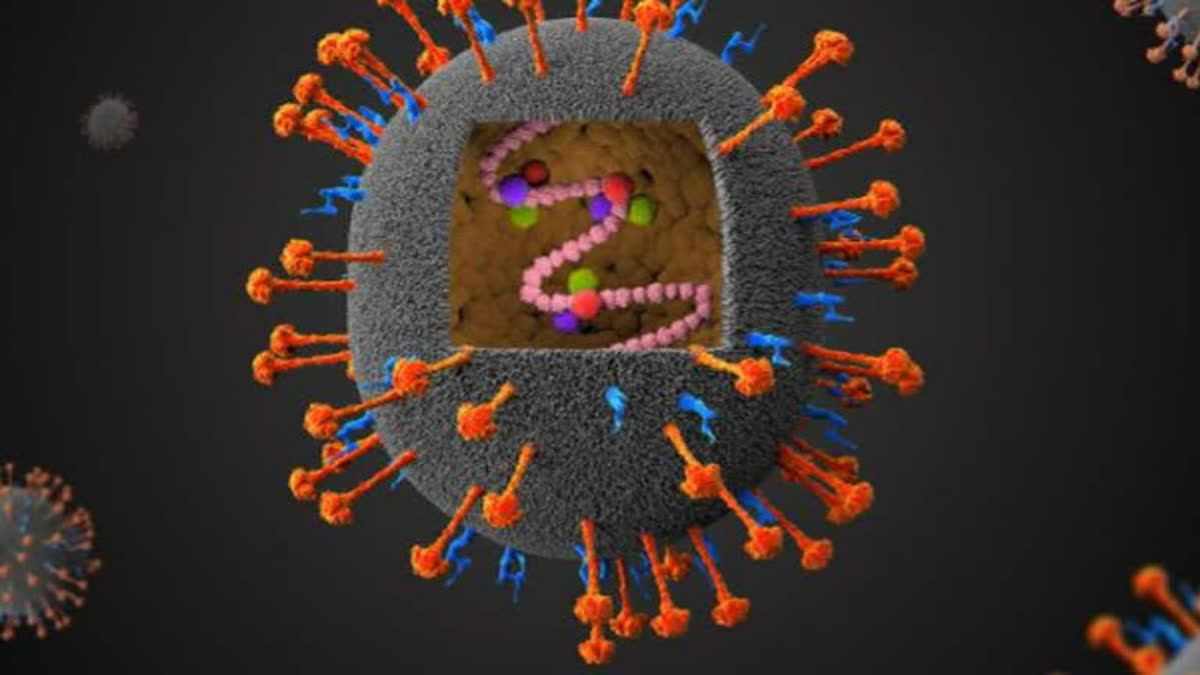New Delhi: Stating that there have been six cases of Nipah virus and two confirmed deaths as of now, Dr Rajiv Bahl, secretary in the department of health research, said the current evidence indicates that the outbreak is limited to the Kozhikode district of Kerala. “Though Nipah virus has high mortality of 40-70 percent, it is important to note that in the earlier outbreaks the scale remains small and for a short time period,” said Bahl, who is also the Director-General of Indian Council of Medical Research (ICMR), while interacting with a selected group of journalists.
In 2018, a total 18 labs had confirmed cases and the outbreak was contained within a month. Therefore, it is important to place measures for containment at the earliest, he said. “The state health authorities have implemented necessary protocols and are continuing efforts to contain the virus and prevent further spread with support from NCDC, ICMR and others,” Bahl said.
ICMR has deployed its mobile BSL-3 laboratory on-ground to test samples. This is in addition to testing at ICMR-NIV’s BSL-4 laboratory. Furthermore, the network of Virus Research and Diagnostic Laboratories (VRDLs) in Kozikhode has been activated. Teams from ICMR’s National Institute of Virology (ICMR-NIV) and National Institute of Epidemiology (ICMR-NIE) have been deployed on the ground and are working with state authorities to strengthen containment efforts.
“It is also advised that people take certain precautionary measures against Nipah, including handwashing, avoiding contact with body fluids of infected or suspected cases, avoiding areas where bats are known to roost and contact with bats as well as avoid consumption of raw foods that may be contaminated by bats, such as raw date palm sap or raw fruits,” the ICMR DG stated.
Referring to the strengthening of public health research in India, Bahl said that in the last few years, the government has undertaken various interventions to strengthen and advance public health research in India.
Also read: Kerala Nipah virus: Another person detected, taking the total number to four
“As part of these ongoing interventions, ICMR has worked to streamline its Intramural Research Programme funding to strengthen research on various priority health issues such as on vaccines, drugs, disease, diagnostics and treatments for stronger public health systems,” he said. He informed that with the launch of the National Health Research Programme, ICMR will be collaborating on large multi-stakeholder studies with national and state-level departments of health and family welfare, on 12 key health areas, including infectious diseases, non-communicable diseases, child health and nutrition, generating critical evidence for strengthening health interventions on these issues.
Emphasising the one-health approach in public health research, Bahl said that under the government’s PM-Ayushman Bharat Health Infrastructure Mission (PM-ABHIM) programme, ICMR is collaborating with eight premier scientific organisations in India to establish a National Institute of One Health, to roll out the National One Health Mission across the country and strengthening multidisciplinary approaches in health research.
Additionally, ICMR is working to expand its network of Biosafety level (BSL-3) and BSL-4 laboratories to strengthen diagnostic infrastructure and enhance access to laboratory services across the country, he stated.



